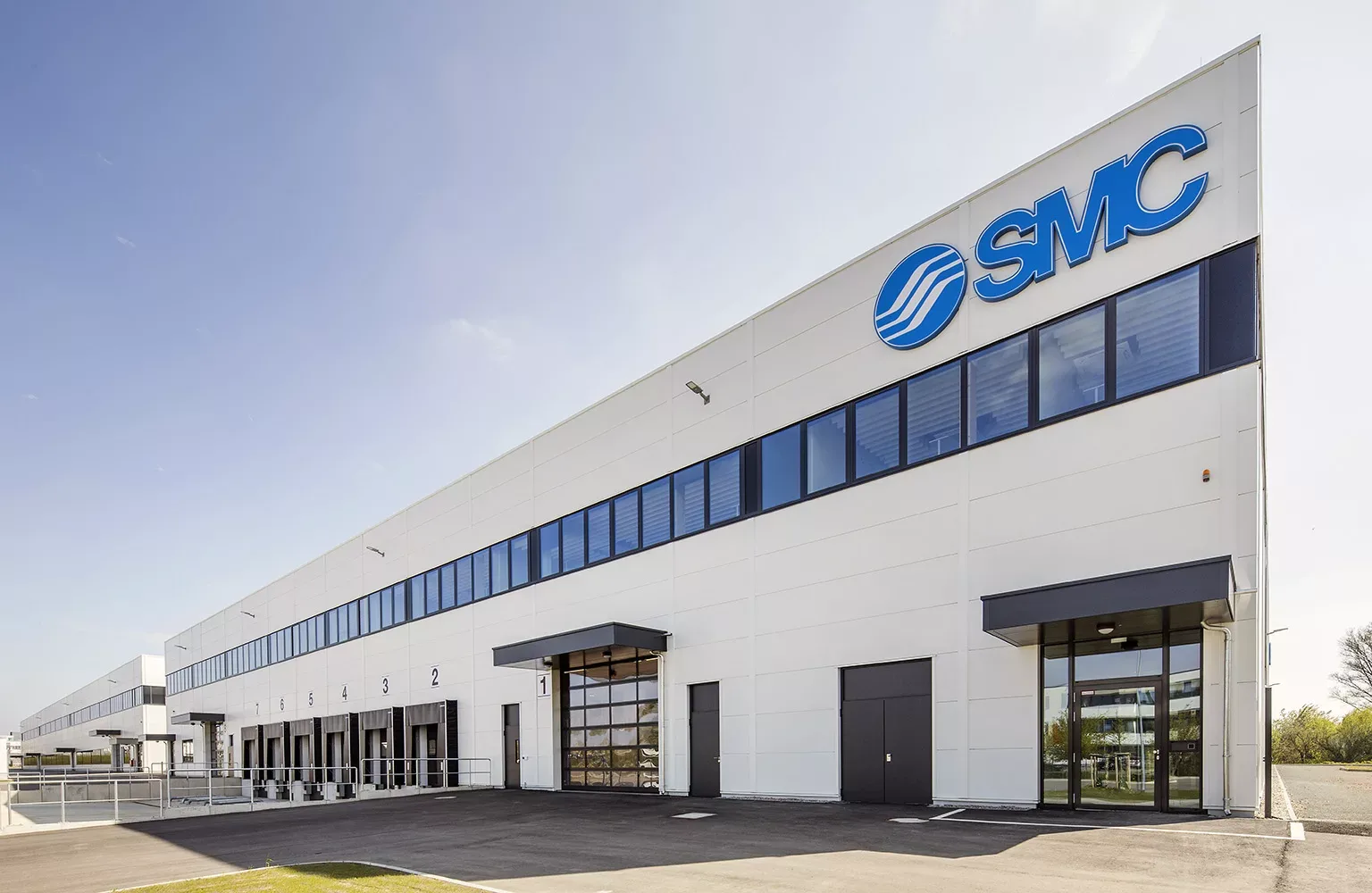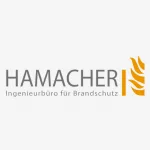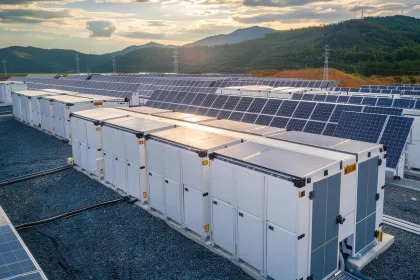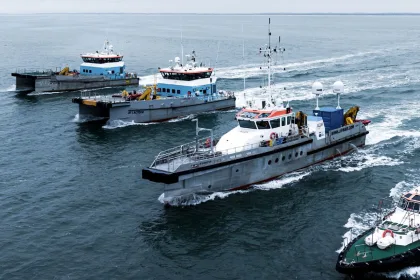With a fusion of Japan’s past and present threading through Takenaka Germany, Deputy General Manager Gebhard von Krosigk discusses how international cooperation is the key to success.
JAPANESE ROOTS BUILDING EUROPEAN FOUNDATIONS
Düsseldorf, a German city known for blending tradition with postmodernity, is unsurprisingly the headquarters of family-owned Japanese construction and engineering company Takenaka Europe, who began its operations there in 1973.
With a history of more than 400 years in Japan and over 50 years of construction experience in Europe, the company’s roots make it unique in today’s market.
“As internationally operating architects, engineers, and general contractors, we represent economic and ecological design, constructing buildings with quality planning and engineering services,” opens Gebhard von Krosigk, Deputy General Manager of Takenaka Europe.
600 employees span 13 European countries, with 90 members of the workforce distributed between Düsseldorf, Frankfurt, and Hamburg.
“Our primary focus is industrial projects such as production and warehouse buildings, R&D centres, and offices, although we now also concentrate on residential buildings in Eastern European countries.
“We generally execute design-build projects for our clients, which means we undertake them from the first idea until they are handed over. During this time, we ensure that certified processes and construction standards are of the highest level,” outlines von Krosigk.
In Germany, an example of a typical Takenaka Europe R&D project is Daikin Chemical’s Technical Research Centre in Dortmund, a high-quality, functional, and unique 6,500 square metre (sqm) office and laboratory space.
However, the company’s focus is not only on first-rate results but also sustainability. SMC Deutschland GmbH’s new 20,000 sqm production warehouse combines concrete and timber structures to reduce building loads for an environmentally-friendly building.
“One of our primary goals is to incorporate sustainability measures into our projects as much as possible,” he states.
“One of our primary goals is to incorporate sustainability measures in our projects as much as possible”
Gebhard von Krosigk, Deputy General Manager, Takenaka Europe
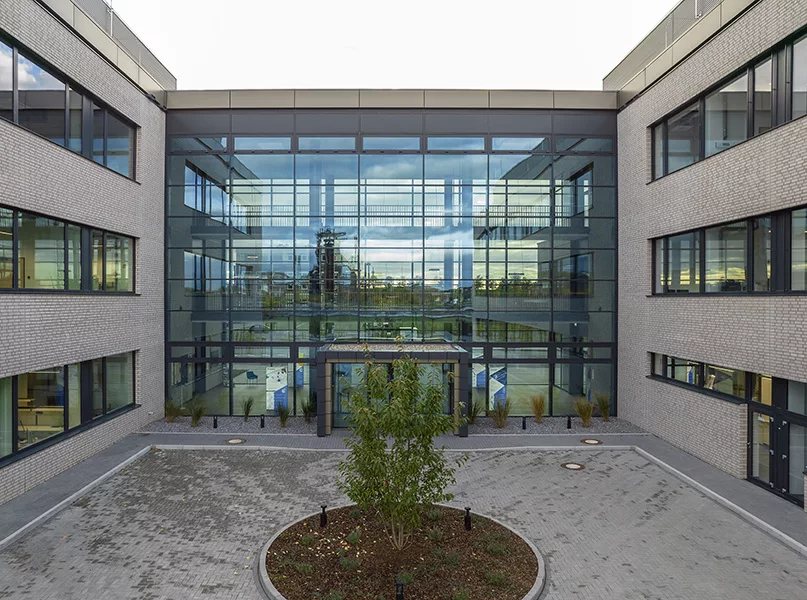
BUILDING LONGEVITY
The construction industry is undergoing challenges across the continent, but Takenaka Europe has numerous large projects in the booming Southeastern region, including Hungary, Serbia, and Slovakia.
“The market in Germany is still struggling, but we hope that the giga projects of Intel, TSMC, and Northvolt will change this situation,” expresses von Krosigk.
Fortunately, Takenaka Europe exhibits many attributes that distinguish it from the competition, but one of the main points of difference is that the company provides a fully integrated design-build service.
“We combine architecture, technical building engineering, and construction so that our clients have one single point of contact for the whole project. This model saves time and fixes costs earlier than the traditional design-bid-build service.
“Furthermore, design and construction activities can overlap, resulting in faster completion of the whole project,” von Krosigk asserts.
In addition to the differences during the project execution stage, Takenaka Europe maintains long-term relationships with customers and is also responsible for projects far beyond the expired warranty period.
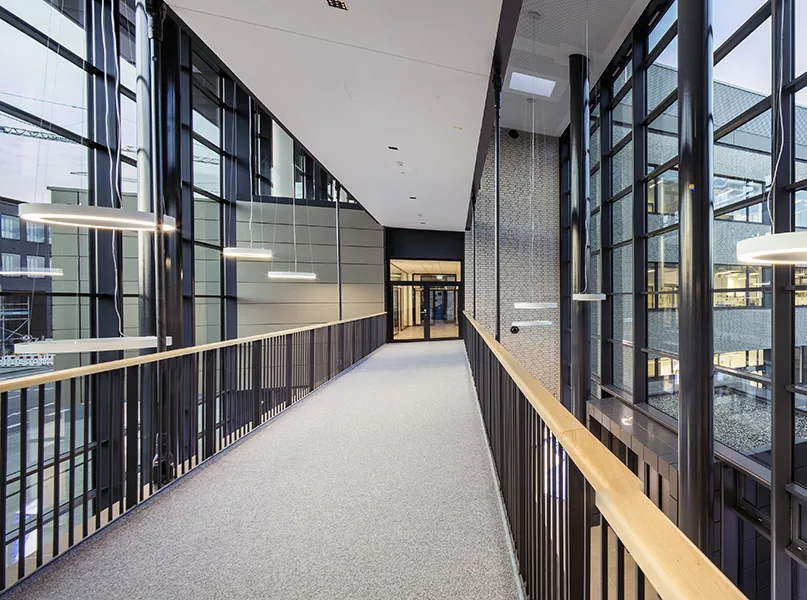
“This strategy has Japanese roots, which subsequently emphasises the satisfaction and trust of our customers and enables us to cultivate lasting alliances.”
Equally important to Takenaka Europe are partner and supplier relationships, which are indeed one of its top priorities.
“As with our clients, the basis of the relationships is trust, and we are keen to establish permanent connections. Takenaka Europe has in-house specialists such as architects, engineers, and construction managers, but we don’t have blue workers, meaning our projects are carried out with subcontractors, some of whom we have been working with for over 20 years,” von Krosigk explains.
“As internationally operating architects, engineers, and general contractors, we represent economic and ecological design, constructing buildings with quality planning and engineering services”
Gebhard von Krosigk, Deputy General Manager, Takenaka Europe
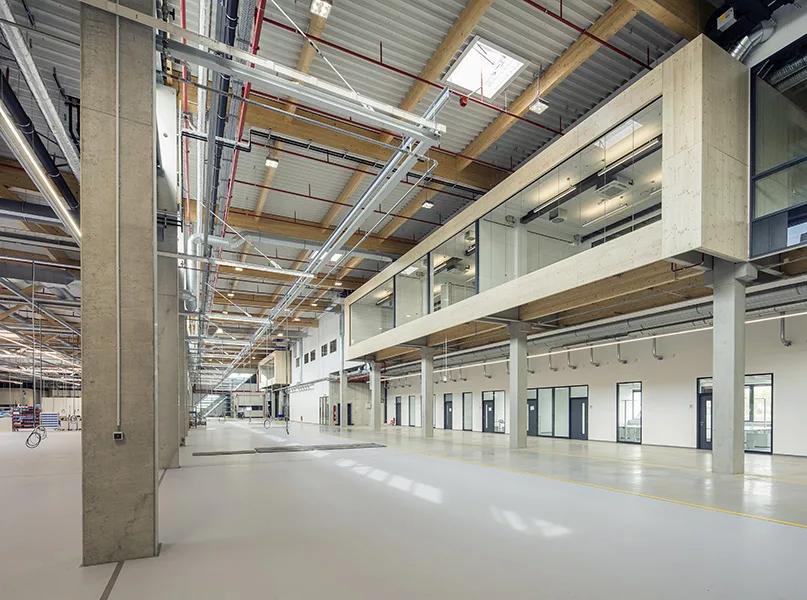
THE BENEFITS OF JAPANESE ORIGINS
Takenaka Europe’s experience and knowledge of Japanese construction influence its Eastern European projects.
Spanning 17 generations, Takenaka’s set of values symbolises the company’s history. Its management philosophy is to ‘contribute to society by passing on the best works to future generations’, meaning people can enjoy sustainable buildings completed to a high standard.
It does this by promoting both in-house and external workforce training with selected EU employees who are experiencing the “spirit” of the parent company for themselves on location in Japan.
“Our company in Japan established a quality management system (QMS) in 1950 and has continually improved it. This system translates its practices into concrete steps and directs internal processes,” von Krosigk tells us.
All of Takenaka Europe’s branches work according to the Japanese QMS, ensuring the smooth and customer-orientated implementation of each project. At the headquarters in Japan, employees are intensively trained by being involved in numerous large-scale jobs for different building types from various industries.
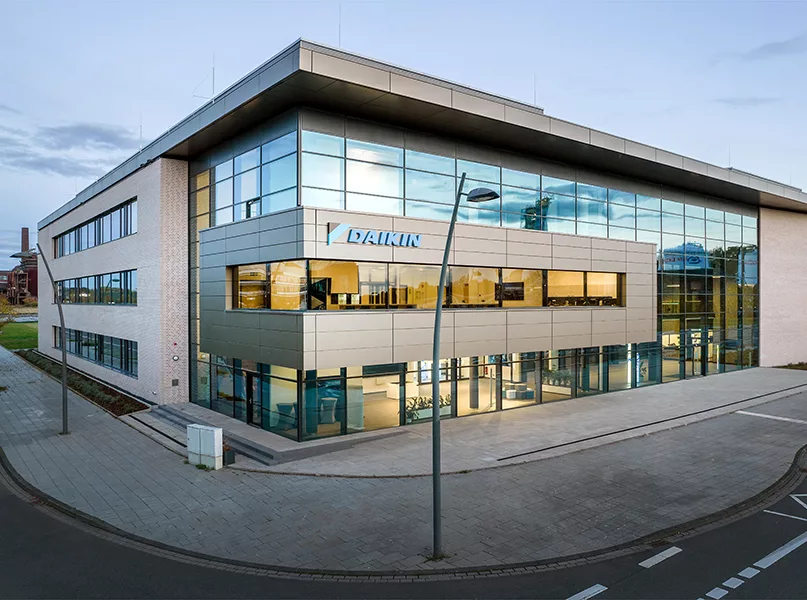
“Consequently, when sent to Europe, the Japanese staff incorporate their experiences into their management roles here,” insights von Krosigk.
The Japanese management style permeates most aspects of Takenaka Europe’s operations; however, the projects in particular benefit from an experienced team. Additionally, the management at Takenaka Europe, together with the Japanese mother company, has set up a training programme that runs twice a year.
Each time, 20 colleagues from various European offices are sent to Japan to visit the headquarters in Tokyo, the research centre, and current construction sites to learn more about the company’s philosophy and mode of operation.
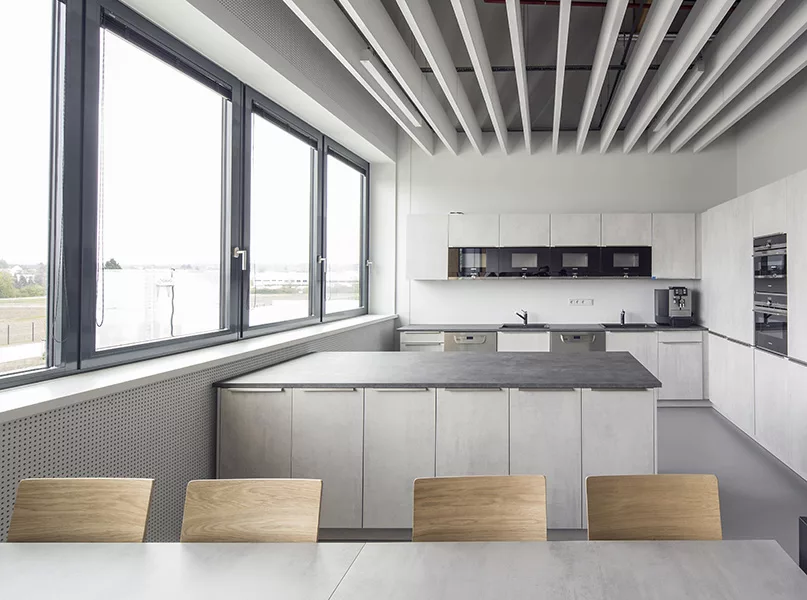
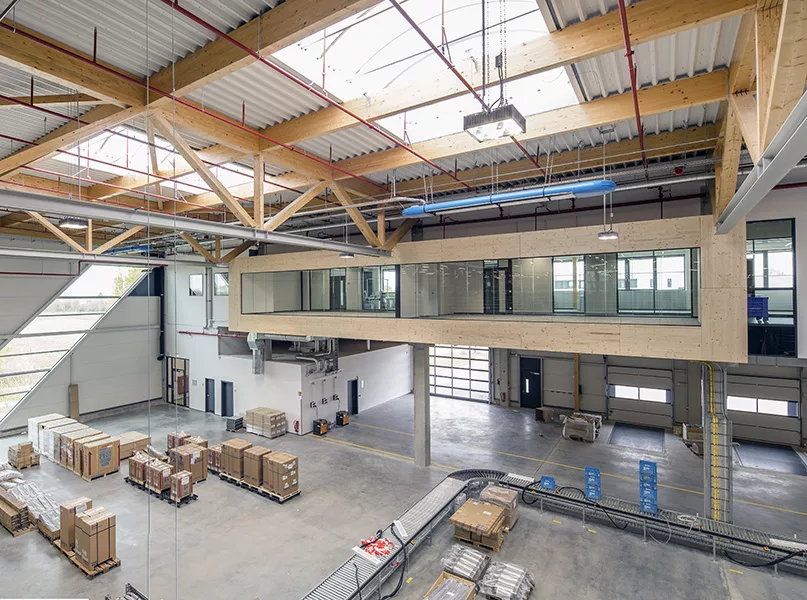
CONSTRUCTING COMPANY VALUES
As a family-owned company, Takenaka Europe is a unique and more conservative employer. Moreover, staff members must be open to particular working procedures and Japanese culture.
“When employees have this foundation, they will become part of the family with a friendly atmosphere, both in each independent branch and between all European branches,” notes von Krosigk.
All employees receive extensive training at the beginning of their Takenaka Europe journey, after which they assume direct responsibility for their tasks.
“Our strategy for empowering employees and recognising their contributions is the combination of trust and a hospitable atmosphere.”
Across the branches, various activities are offered, such as making Christmas presents for underdeveloped countries, participating in charity runs, or taking part in city clean-up initiatives.
“In Germany, as part of our environmental, social, and governance (ESG) practices, we have started to change our company cars into electric vehicles (EVs), as well as using the train more often, and reducing our use of air travel for national business trips.
“We guide our clients to consider environmentally-friendly buildings with a reduced CO2 footprint,” von Krosigk points out.
Takenaka Europe’s main goal for 2024 is to remain strong in its current position while the construction market continues to address challenges.
“We will take the opportunity to further invest in important steps, such as developing our building information modelling (BIM) capacity, training an in-house ESG Manager, and increasing cross-border communication within Takenaka Europe’s architecture, engineering, and construction workforce to increase the quality of services in our offices,” von Krosigk concludes.



